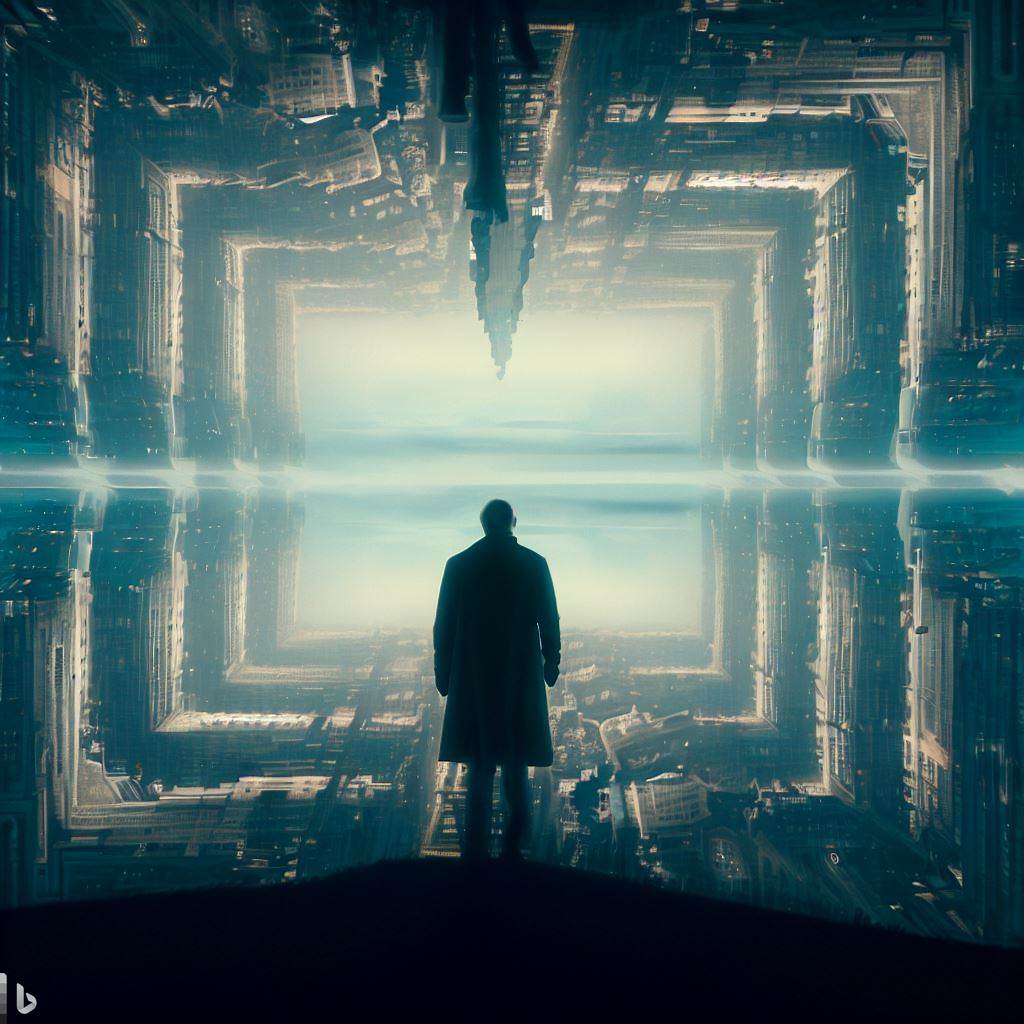
In the vast landscape of contemporary cinema, few films inspire profound introspection and philosophical inquiry as potently as Christopher Nolan's intricate masterpiece, "Inception". As a labyrinth of dreams within dreams, the film pushes the boundaries of storytelling, urging us to reflect on our notions of reality and the complex interplay between our conscious and subconscious minds.At first glance, "Inception" might appear to be a high-stakes heist film, taking place not in banks or vaults, but within the intricate architecture of human dreams. However, delving deeper into its meticulously woven narrative, one quickly realizes that it’s not merely about the act of inception - planting an idea into someone's Leonardo DiCaprio’s character, Dom Cobb, is a compelling protagonist. A highly skilled 'extractor' who delves into people's dreams to steal their secrets, he finds himself caught in a personal cycle of regret and guilt, as he continues to revisit the dream image of his deceased wife, Mal. The dream, for Cobb, serves both as a prison and refuge - a place he is drawn to and yet longs to escape from. This portrayal of Cobb’s struggle encapsulates our universal human tendency to retreat into comfortable illusions rather than facing painful truths.subconscious - but rather, it serves as a profound meditation on our perception of reality, the power of dreams, and the undeniable influence of our subconscious minds.As Cobb and his team venture deeper into the layers of dreams, the line between reality and illusion becomes increasingly blurred. This distortion symbolizes our often skewed perception of reality. How often do we allow our biases, experiences, and emotions to cloud our judgement and warp our perception of the world around us? Just like Cobb, we often mistake our subjective interpretations for objective reality.Nolan's clever use of a simple spinning top as a reality-check mechanism is a masterstroke. This small, seemingly innocuous object carries immense symbolic weight. In the climactic final scene, the camera pans in on the spinning top, its movement relentless and its fate unresolved, epitomizing the film's exploration of the elusive nature of truth. The unresolved ending - is Cobb awake or still dreaming? - is left deliberately ambiguous by Nolan, forcing us to question our assumptions about reality. It's a powerful cinematic metaphor for the philosophical questioning of our perception of truth, a question as old as humanity itself.Moreover, "Inception" pushes us to acknowledge the immense power and potential of our dreams. As the narrative dives into the intricacies of dream manipulation, it brings to light the complex mechanisms through which our dreams influence our waking lives, shape our psyche, and dictate our understanding of the world. Nolan’s film becomes a compelling case study in the exploration of the subconscious mind, a terrain often overlooked or taken for granted.The journey that "Inception" takes us on is not a simple voyage from point A to point B; it's a spiralling descent into the depths of the human psyche, interspersed with gravity-defying action and heart-wrenching emotional revelations. As we navigate through the complex maze alongside Cobb, we are encouraged to embark on our introspective journeys, to question our realities and confront our inner demons."Inception" is more than a film; it's a thought-provoking exploration of human consciousness and a stirring invitation to question the fabric of our perceived reality. It reminds us of the power of our subconscious, the illusions that we often mistake for reality, and the intricate labyrinth that is the human mind. Nolan masterfully unravels the complex tapestry of dreams and reality, leaving us with the understanding that "Inception" is not simply about the infiltration of dreams, but a journey towards awakening to our realities.In the end, "Inception" is a journey of enlightenment, a testament to the exploration of self, and a compelling narrative that pushes the boundaries of cinematic storytelling. It is an invitation to not merely observe, but to participate, to question, to delve into the depths of our subconscious, and to emerge with a richer understanding of our complex human nature.Furthermore, the concept of 'limbo' – an unconstructed dream space where the dreamer is trapped indefinitely – is another intriguing aspect of "Inception". Here, Nolan delves into the notion of time dilation in dreams, where hours can turn into years, a concept backed by neuroscience. In the state of limbo, characters lose their grip on their identities as they immerse themselves in a world entirely of their own creation, ultimately forgetting the 'real' world. This serves as a powerful metaphor for our propensity to lose ourselves in our fantasies or delusions, often ignoring the passage of time and consequences in reality. This diversion from reality, however subtle, can have profound implications on our perceptions, decisions, and actions in the real world. Just as Cobb and Mal create an entire city in their shared dream state, we too, often construct elaborate narratives in our minds, blurring the lines between our internal world and the external reality. This exploration of 'limbo' in "Inception" serves to highlight the enticing yet perilous nature of unchecked fantasy and denial of reality.





Comments
There are no comments for this story
Be the first to respond and start the conversation.